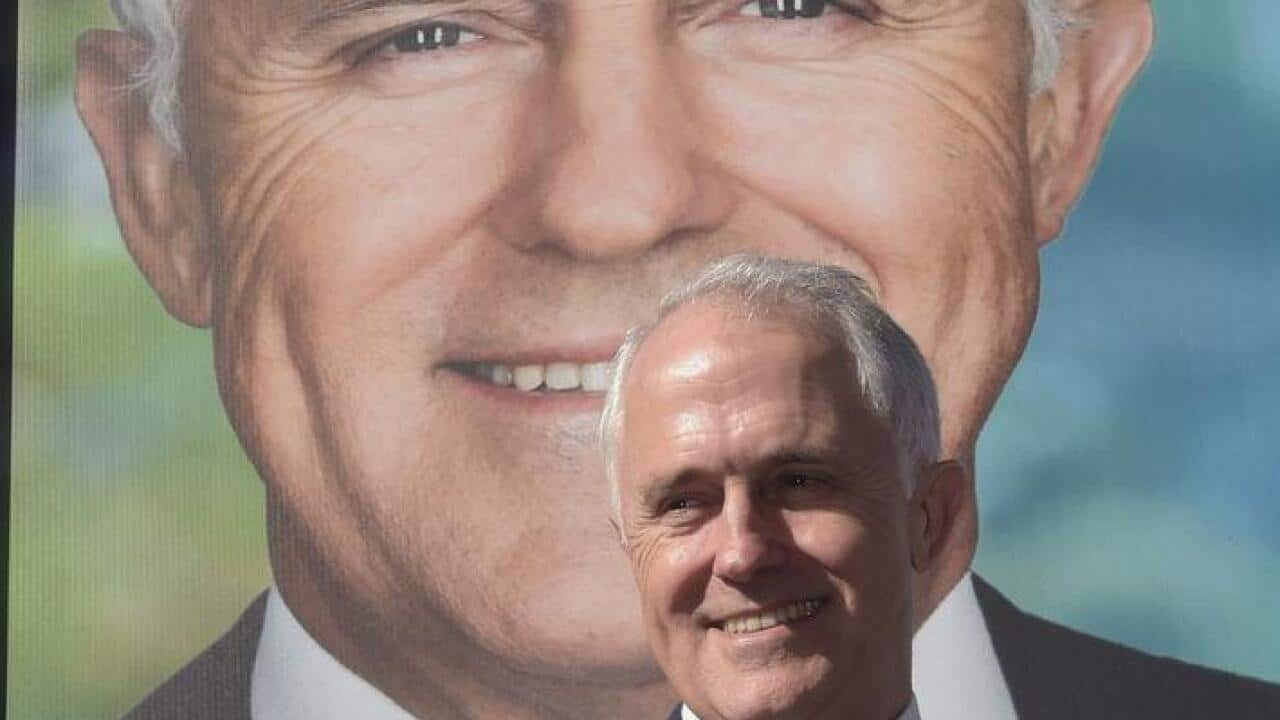Prime Minister Malcolm Turnbull has repeatedly warned voters against supporting independents and minor parties this federal election, claiming chaos would ensue in the Senate.
However, an exclusive SBS commissioned Essential Media poll has found many voters won't be taking his advice, with some now more likely to support minor parties and viewing a hung parliament as a "good outcome".
SBS asked voters if they agreed or disagreed with a range of statements in relation to the election.
Of those polled, 35 per cent said it would be “a good thing” if the independents and minor parties held the balance of power in the next government.
Mr Turnbull has repeatedly warned of the ‘chaos’ of an independent-Greens party alliance, urging voters not to support those like South Australian Senator Nick Xenophon.
Mr Turnbull used his address to the National Press Club on Thursday to reiterate his message.
"A vote for Labor, Greens or an independent in one of the 20 key battleground seats across the country is, in effect, a vote for the chaos of a hung parliament," he said.
However 33 per cent of voters say they're now more likely to vote for an independent or minor party.
American-born mother of one, Cristin Kelly is voting for the first time this weekend in Willoughby and told SBS Mr Turnbull and Opposition Leader Bill Shorten haven't succeeded in swaying her vote.
"Looking at the parties I think I'm probably going to vote for a third party," Ms Kelly said.
"I think the major parties may be lower in my preferences, I haven't been overly impressed."
When asked if they were now "more confident" in the Liberal Party to govern Australia, 33 per cent of voters polled agreed, the same per cent supported the Labor party.
Medicare and economic management key issues for voters
The SBS poll also found voters consider Medicare and financial management to be among the most important when deciding who they’ll support.
Labor’s ‘scare campaign’ on Medicare appears to be gaining the most traction, with 45 per cent of those polled saying it was among the most important issues for them in deciding which party or candidate to vote for.
Mr Shorten has declared the election a referendum on the future of Medicare, claiming the Coalition will privatise the service.
Mr Turnbull has repeatedly denied that, instead pushing the Coalition’s economic record and an agenda of jobs and growth.
Of voters polled by SBS, 35 per cent agreed management of the economy was a big issue for them. The issue of which party will benefit voters and their family more followed, at 22 per cent.
Related reading

We would have lost under Abbott: Turnbull
The party leaders were the least important to voters in deciding who they’ll vote for, with only six per cent of those polled deeming them an important consideration.
"[The leaders] have been able to transcend the traditional beauty contest to turn the election into some form of battle of ideas," Essential Media's Peter Lewis told SBS.
Superannuation policies followed closely behind at seven per cent, while environment policies were considered important by only 13 per cent of voters.
Education and taxation policies remain middle of the road issues, with 17 per cent of voters considering them when deciding who to vote for.
Throughout the election campaign, various newspolls have had Mr Shorten and Mr Turnbull neck-and-neck in terms of the two-party preferred vote as well as who would be the preferred prime minister.
Of those voters asked by SBS whether or not they now have a “more favourable view” of Mr Turnbull and Mr Shorten following the eight-week campaign, 50 per cent and 48 per cent said they disagreed respectively.
While Essential Media tried to get a snapshot of the nation, the response rate and coverage for the online poll means an accurate cross section of Australia could not be ensured.



